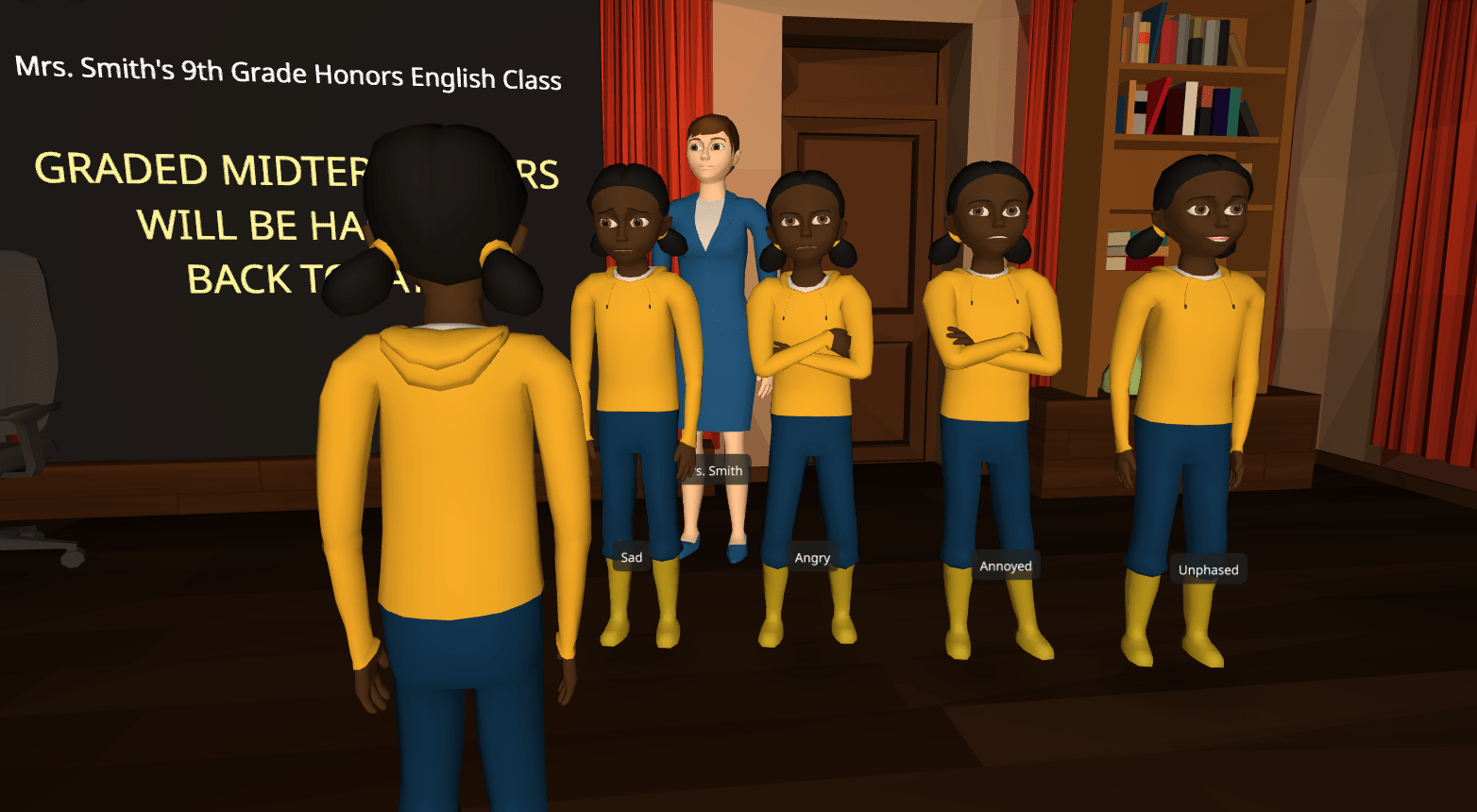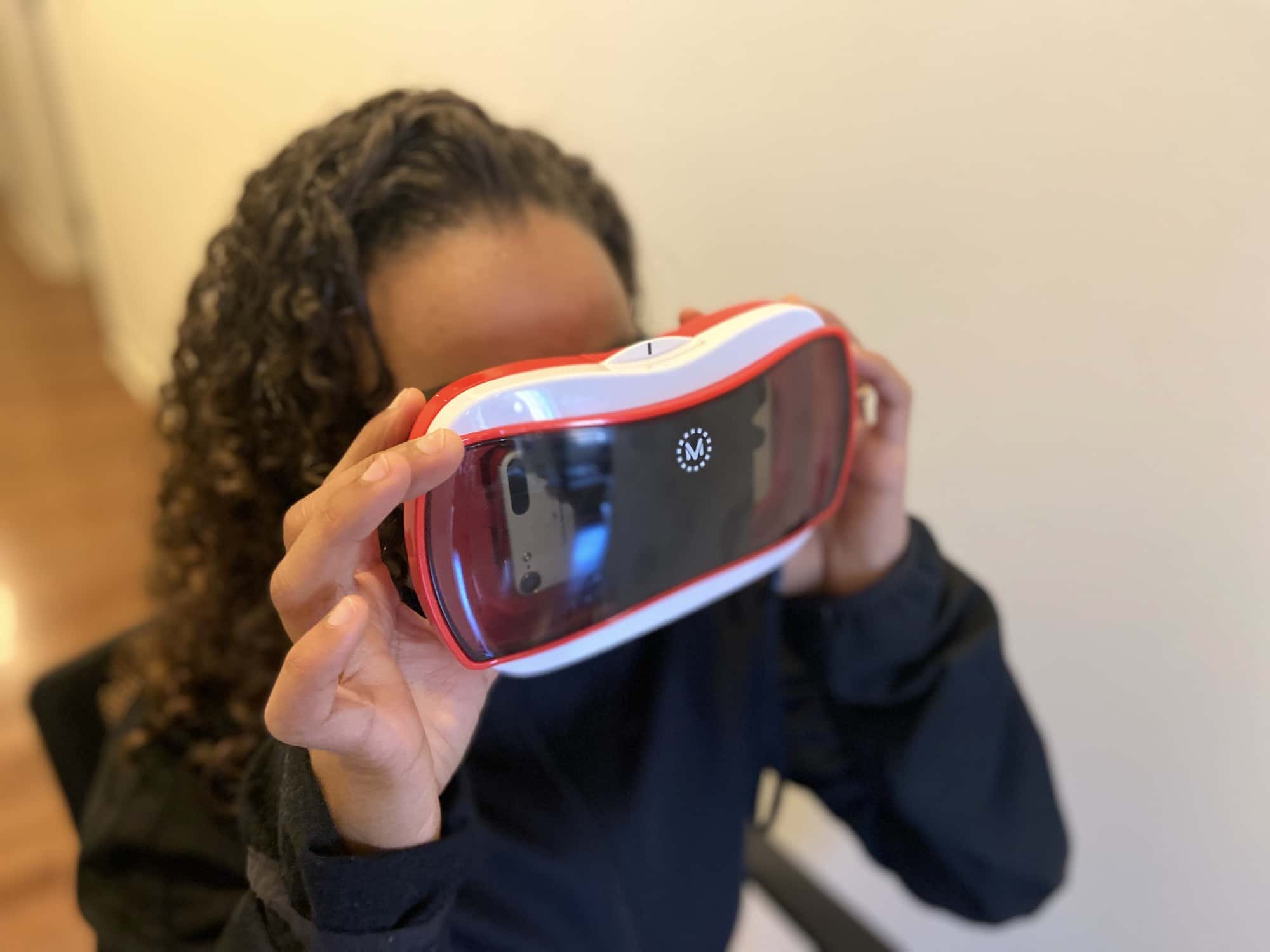
In Passage Home VR, players use body language as a means of expression to navigate a racially-charged encounter.

Players are put into the role of a high-achieving African American student who is falsely accused of plagiarism.

The system was implemented for use with mobile devices and low cost HMDs.
Project Overview
Description
Race and ethnicity impact a number of experiences in the physical world, most of which are seldom modeled in virtual worlds. Even when race and ethnicity are taken into account for the design and implementation of characters and avatars, they are often only thought of as graphical customizations (e.g., skin color). This approach to the virtual representation of race and ethnicity lacks the depth necessary to meaningfully engage players from a wide range of identity backgrounds in transformational virtual storytelling experiences.
Towards the goal of improving approaches to virtual race and ethnicity representation, this project proposes a new computational model of racial and ethnic socialization (RES) for the design and implementation of interactive VR narrative games. Central to Passage Home VR is an interactive narrative model steered by body language driven game mechanics and a novel embedded computational model of RES theory.
Passage Home VR was implemented for use with mobile devices and low cost HMDs. In the game, the user assumes the virtual identity of an African American girl whose high school teacher has accused her of plagiarizing an essay when, in fact, the character is a passionate, high-achieving English student who took the assignment very seriously and wrote the essay herself.
Results and Contributions
In summary, this research investigated:
(1) how players’ racial and ethnic socialization (RES) influences in-game behavior and how they experience emotions, perceive characters, themes, and events in VR narratives,
(2) how RES can be computationally modeled to support virtual race and ethnicity representation, compelling interactive narrative storytelling, and potentially to social scientific research, and
(3) how body language can be used to inform the design of interaction mechanics in interactive VR narratives simulating social phenomena.
This approach resulted in an engaging narrative system grounded in an evidence-based social science model of how individuals cope with racial discrimination.
More Information
- FDG 2020, Games Beyond Entertainment Track: “I Don’t See Color”: Characterizing Players’ Racial Attitudes and Experiences via an Anti-Bias Simulation Videogame
- AAAI 2019 Spring Symposium, Story-Enabled Intelligence Track: Modeling Racial and Ethnic Socialization for Interactive Storytelling
- Featured by MIT News: